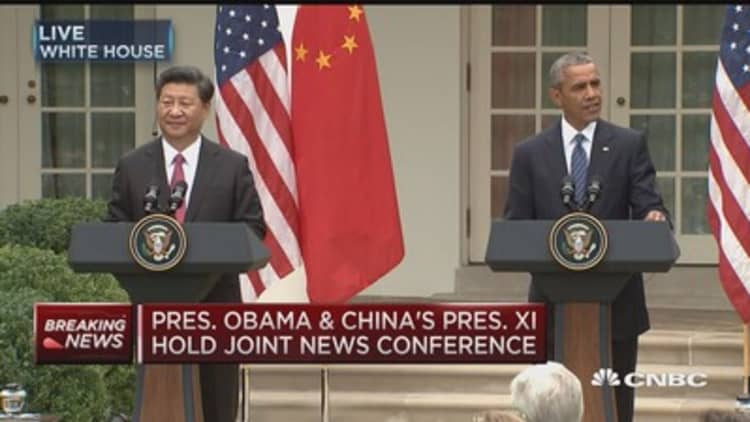Iran will issue Islamic Treasury Bills, its version of short-term sovereign debt, for the first time on Monday in an attempt to provide a fresh fiscal stimulus for its cash-strapped economy, according to people involved in the move.
About $300 million-worth of the Treasury Bills — a sharia law-compliant way for the government to raise money — will be offered to investors at a steep discount to their face value in a sign of how nascent capital markets are developing in Iran.
The public offering will test the international community's reaction to Iran's risks following a breakthrough nuclear agreement with world powers that is expected to partially lift sanctions on the country next year.
The government issues the one-year bonds to contractors in lieu of paying them and the securities are now being offered to investors via Iran's Fara Bourse, its small over-the-counter market.
Crucially, the effective interest rate on the bills is expected to be higher than the official bank deposit rate, which is about 20 per cent. Iran's economy is heavily dependent on its banking system, which is hampered by large levels of bad debts, punitively high interest rates and double-digit rates of inflation.

"There is a credit crunch in Iran and the solution is to increase the money supply," said Majid Zamani, chief executive of Kardan Investment Bank, the Tehran-based company that is acting as market maker on the Islamic T-bill sale.
This is the first opportunity in many years for the market to give its verdict on the sovereign debt of Iran. The government, according to Mr Zamani, is planning $600 million more of these Islamic T-bills in the coming months.
More from the Financial Times:
Russia's Syria build-up surprises Iran
French companies fear losing Iran trade
Sanctions' end will help Iran property market
Saeed Laylaz, an economic analyst, said: "These Treasury bills with such small amounts cannot help our economic problems but their issuance is the first step toward reviving financial relations with the world and seeing if foreigners and the Iranian expatriate community trust this market after the nuclear deal."
The centrist government of Hassan Rouhani is struggling with debts it inherited from its populist predecessor, Mahmoud Ahmadi-Nejad. Tehran owes 1,000 trillion rials ($33.3 billion) to the banking system and is facing a squeeze on funding due to falling oil revenues and the impact of the sanctions.
Read MoreIran leader demands Saudi Arabia apologise for hajj deaths
Iran's economy started growing last year after three successive years of contraction, but it has slowed this year and many Iranian economists predict a sharp deterioration.
Gholamali Kamyab, vice-governor of Iran's central bank, told delegates at last week's Europe-Iran Forum: "Having deep debt markets in Iran is one of the instruments that we can use to raise funds internally." He said the issue of Islamic T-bills was "quite new, so we will have to wait and see how it goes".
The Central Bank of Iran is allowed by the Monetary and Credit Council — a decision-making body — to issue 100 trillion rials ($3.3 billion) of bonds in the current year to the end of March 2016 if needed.


